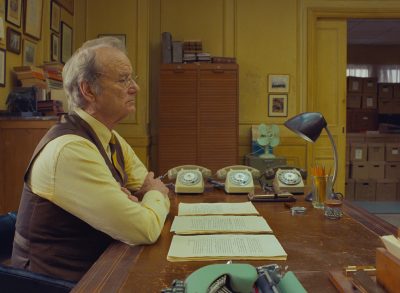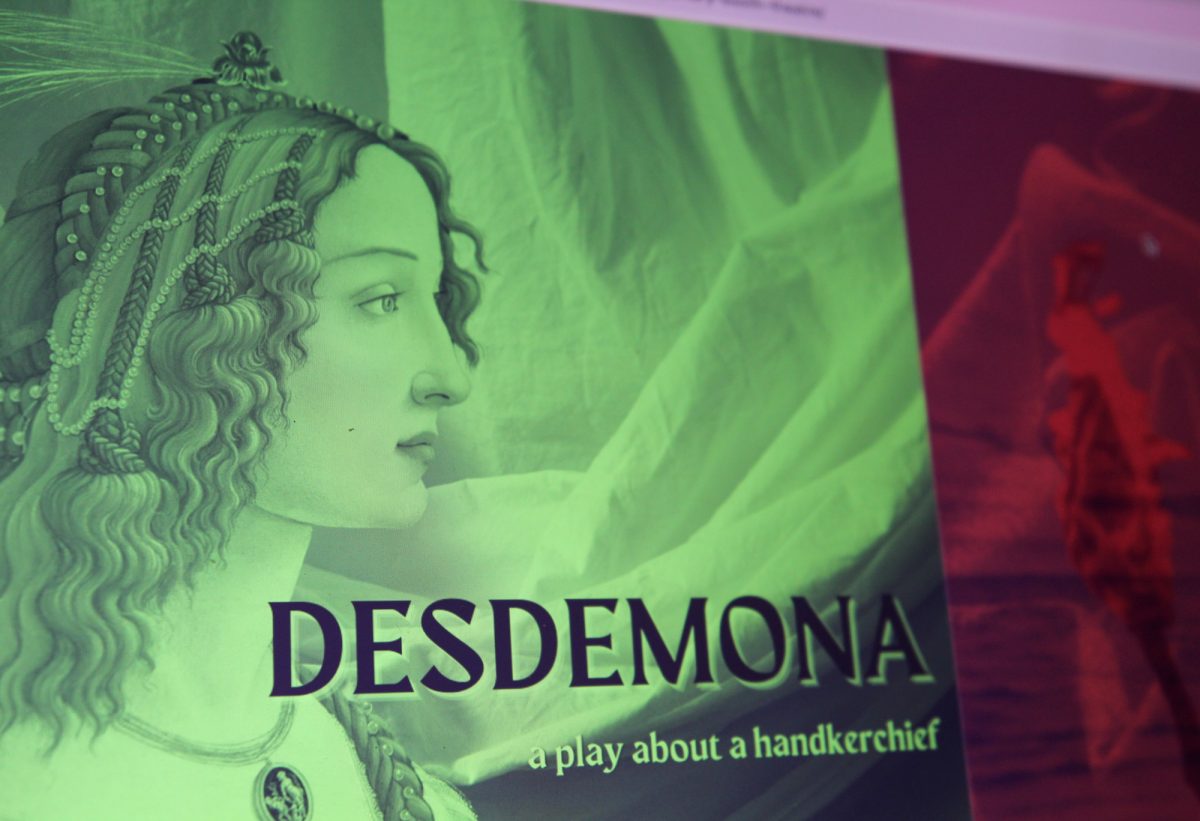Audiences have been holding their breath for more than a year to see Wes Anderson’s return to the silver screen, “The French Dispatch,” which was originally slated to hit theaters in July 2020.

With a star-studded cast, Anderson uses personal favorites such as Bill Murray, Adrien Brody and Owen Wilson, along with a long list of big-name stars and fan favorites like Timothée Chalamet, Saoirse Ronan, Frances McDormand and many more outstanding actors.
Set in the fictional city of Ennui-sur-Blasé, “The French Dispatch” is the French branch of “The Kansas Evening Sun.” The plot follows the odd stories of the equally idiosyncratic journalists that pen them. The film is a rather obvious tribute to “The New Yorker;” Anderson is an avid fan of the magazine and published “An Editor’s Burial: Journals and Journalism from the New Yorker and Other Magazines” — a collection of works that inspired the screenplay.
There is no true main character except for the publication itself, and the film boasts a wonderful blend of talent working to support Anderson’s most creative escapade yet, packing three beautifully quirky stories into 103 minutes of journalistic frenzy.
At the center of “The French Dispatch” publication, Arthur Howitzer Jr., played by Murray, is the tough and passionate editor whom the entire magazine pivots upon. Though the start of the movie is marked by Howitzer’s sudden death, he remains a guiding figure of the film, as the story is told retroactively. The plot begins with Howitzer’s postmortem demand for “The French Dispatch” magazine that it must be immediately closed following his passing, with one final issue published including his obituary.
The film is broken into three stories and their corresponding sections of the magazine: the first centered around artists and arts, then poetry and politics and ending with taste and smell. Anderson has a complete disregard for the fourth wall, as much of the narration is spoken directly to the camera. “The French Dispatch” has quite a few laugh-out-loud moments thanks to the creative script and offbeat banter.
The first article, “The Concrete Masterpiece,” is part of the Arts and Artists section and told by writer J.K.L. Berensen, played by Tilda Swinton. The article follows Moses Rosenthaler, played by Benicio del Toro, a painter in a maximum-security prison, and his rise to fame as an artist thanks to a fellow inmate and his uncles, who decide to turn Rosenthaler into a modern art sensation. The story is hilarious, slightly ridiculous and perfected by the unique cast.
“Revisions to a Manifesto” is the article for the Politics and Poetry section of the final issue, written by Lucinda Krementz, played by McDormand, a lonely but dedicated journalist. Krementz chronicles the protests of university students, led by Chalamet’s Zeffirelli. The short-lived revolution stems from the students’ request for boys to be allowed in the female dormitories. McDormand brings the story to life, and Chalamet brings the boyish delight.
The Tastes and Smells section’s story, “The Private Dining Room of the Police Commissioner,” is perhaps the most frenzied and hard to follow. Roebuck Wright, played by Jeffery Wright, is the personable writer who recounts a wild night of crime, personal struggles and — above all — food.
Across the three stories, Anderson pushes his creative boundaries with unique stylistic choices. Much of the film is in black and white, but emotional climaxes flood the screen with color. In an unexpected change of medium, the third story transforms into a quick animated sequence.
Alongside these experimental visuals, Anderson stays true to his signature symmetry and wonderful oddness. “The French Dispatch” is undoubtedly an artistic triumph, though at times a slightly chaotic one.































































































































Elyse Hamilton • Oct 27, 2021 at 11:56 am
Well done, CB!! This film would not have been on my watch list, but it is now!
Maya Packer • Oct 26, 2021 at 9:23 am
Such an enlightening review, can’t wait to see what Breland writes next. Bravo!